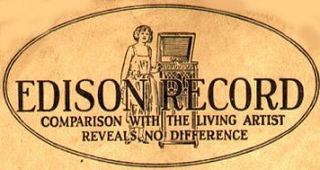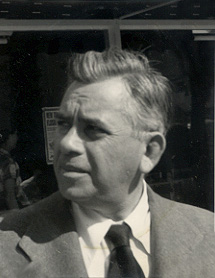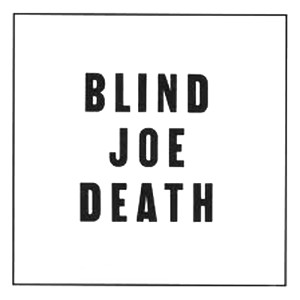Literary Sources
- Sherman, Robert B. Walt's Time: from before to beyond , Santa Clarita: Camphor Tree Publishers, 1998.
Other sources
| This 1920s song article is a stub. You can help Wikipedia by expanding it. |
"(What Do We Do on a) Dew-Dew-Dewey Day" was a popular song dating from 1927. It was recorded by Clyde Doerr and his Orchestra. The song is a Fox Trot which contains a vocal refrain, hence the unconventional length of the record (4 minutes, 2 seconds). It was written by Tin Pan Alley tunesmiths Al Sherman, Howard Johnson and Charles Tobias. It was also recorded by Irving Kaufman and the Manhattan Dance Makers. Nearly 20 years after its release, Republican candidate Thomas Dewey revived the song for his campaign in the 1948 election. It was sung at the party's convention held in the summer of that year.
"Dew-Dew-Dewey Day" is the last of Edison's acoustically recorded selections. It was recorded on July 1, 1927, in the New York City studio. While most recording companies embraced electrical recording in the mid-1920s, Edison continued to perfect and embrace the acoustical techniques. Edison's first electrically recorded selection is generally believed to be "I'm Gonna Settle Up (Then I'm Gonna Settle Down), recording matrix number 11778. The"Dew-Dew-Dewey Day" recording matrix number is 11777.
| This 1920s song article is a stub. You can help Wikipedia by expanding it. |

The Victor Talking Machine Company was an American record company and phonograph manufacturer headquartered in Camden, New Jersey.

Edison Records was one of the earliest record labels which pioneered sound recording and reproduction and was an important player in the early recording industry.

The Edison Diamond Disc Record is a type of phonograph record marketed by Thomas A. Edison, Inc. on their Edison Record label from 1912 to 1929. They were named Diamond Discs because the matching Edison Disc Phonograph was fitted with a permanent conical diamond stylus for playing them. Diamond Discs were incompatible with lateral-groove disc record players, e.g. the Victor Victrola, the disposable steel needles of which would damage them while extracting hardly any sound. Uniquely, they are just under 1⁄4 in thick.

Long Tall Weekend is the seventh studio album by American alternative rock duo They Might Be Giants, released in 1999. It was released exclusively online through the digital music service eMusic. The album was the band's first since their departure from the major label Elektra. Long Tall Weekend was also the first full-length album released exclusively on the Internet by an established major label band. Although the album's primary release was digital, CDs of the album were issued promotionally. Following the success of the album's release through eMusic, TMBG went on to issue a digital series of rarities collections — TMBG Unlimited — through their website.

Robbin' the Hood is the second album by the Southern California ska punk band Sublime, which was released in 1994. It is noted for its experimental nature, low production values, and numerous samples and interpolations of other artists.
Charles Tobias was an American songwriter.

Warren Haynes is an American musician, singer and songwriter. Haynes is best known for his work as longtime guitarist with the Allman Brothers Band and as founding member of the jam band Gov't Mule. Early in his career he was a guitarist for David Allan Coe and The Dickey Betts Band. Haynes also is known for his associations with the surviving members of the Grateful Dead, including touring with Phil Lesh and Friends and the Dead. In addition, Haynes founded and manages Evil Teen Records.

"Are You Lonesome Tonight?" is a song which was written by Roy Turk and Lou Handman in 1926. It was recorded several times in 1927—first by Charles Hart, with successful versions by Vaughn De Leath, Henry Burr, and the duet of Jerry Macy and John Ryan. In 1950 the Blue Barron Orchestra version reached the top twenty on the Billboard's Pop Singles chart.

"A Horse with No Name" is a song written by Dewey Bunnell, and originally recorded by the folk rock band America. It was the band's first and most successful single, released in late 1971 in Europe and early 1972 in the United States, and topped the charts in Canada, Finland, and the United States. It was certified gold by the Recording Industry Association of America.

Avrum Sherman pen name Al Sherman was an American songwriter active during the Tin Pan Alley era in American music history. Some of his most recognizable song titles include: "You Gotta Be A Football Hero," "Now's The Time To Fall In Love" and "Lindbergh ." Sherman is one link in a long chain of family members who were musical. Most notably, his sons, Robert and Richard were to join the ranks of America's most highly regarded songwriters. Pairing up and mentoring the Sherman Brothers team has often been referred to as Al Sherman's greatest songwriting achievement.

"Until You Come Back to Me " is a song written by Morris Broadnax, Clarence Paul, and Stevie Wonder. The song was originally recorded by Stevie Wonder in 1967, but his version was not released as a single and did not appear on an album until 1977's anthology Looking Back. The most well-known version of this song is the 1973 release by Aretha Franklin, who had a million-selling top 10 hit on Billboard charts. The song reached no. 1 on the R&B chart and no. 3 on the Hot 100 chart in 1974. It became an RIAA gold record.

Blind Joe Death is the first album by American fingerstyle guitarist and composer John Fahey. There are three different versions of the album, and the original self-released edition of fewer than 100 copies is extremely rare.
"My One and Only" is a song composed by George Gershwin, with lyrics by Ira Gershwin, written for the 1927 musical Funny Face where it was introduced by Fred Astaire, Betty Compton and Gertrude McDonald. It was originally titled "(What Am I Gonna Do) If You Turn Me Down?"

"I'm Gonna Miss Her " is a song co-written and recorded by American country music artist Brad Paisley. It was released in February 2002 as the third single from his album Part II. The song reached the top of the Billboard Hot Country Songs chart that year, becoming the third number-one hit of Paisley's career. Paisley wrote this song with Frank Rogers.

"Nobody Knows You When You're Down and Out" is a blues standard written by Jimmy Cox in 1923. Its lyrics, told from the point of view of somebody who was once wealthy during the Prohibition era, reflect on the fleeting nature of material wealth and the friendships that come and go with it. As a vaudeville-style blues, it was popularized by Bessie Smith, the preeminent female blues singer of the 1920s and 1930s. Since her 1929 recording, it has been interpreted by numerous musicians in a variety of styles.

"Whispering" is a popular song. "Whispering" was first published in 1920 by Sherman, Clay & Co., of San Francisco. The initial 1920 copyright and first publishing attributes the lyrics to Malvin Schonberger and the music to John Schonberger.

"I Ain't Gonna Stand for It" is the second single from Stevie Wonder's 1980 album, Hotter Than July. It reached number four on the Billboard R&B singles chart and number 11 on the Hot 100. It also hit number 10 on the UK Singles Chart. The song is famous for Wonder's imitation of a seasoned country-and-western crooner and his inspiring drumming. Charlie and Ronnie Wilson of The Gap Band provide backing vocals on the song. It was covered by Eric Clapton in 2001.
"Cohen on the Telephone", also known as "Cohen at the Telephone" is a comedy monologue. The monologue was released on cylinder records, 78 rpm records, and early sound film.

Embrace are an English rock band formed in Bailiff Bridge in 1990. To date they have released seven studio albums, one singles album and one B-sides compilation. The band consists of brothers singer Danny McNamara and guitarist Richard McNamara, bassist Steve Firth, keyboardist Mickey Dale and drummer Mike Heaton. The group have released seven studio albums: The Good Will Out (1998), Drawn from Memory (2000), If You've Never Been (2001), Out of Nothing (2004), This New Day (2006), Embrace (2014) and Love Is a Basic Need (2018).
This is a list of Bing Crosby songs he recorded twice or more during his career, excluding all of the 1954 re-recordings for Bing: A Musical Autobiography.